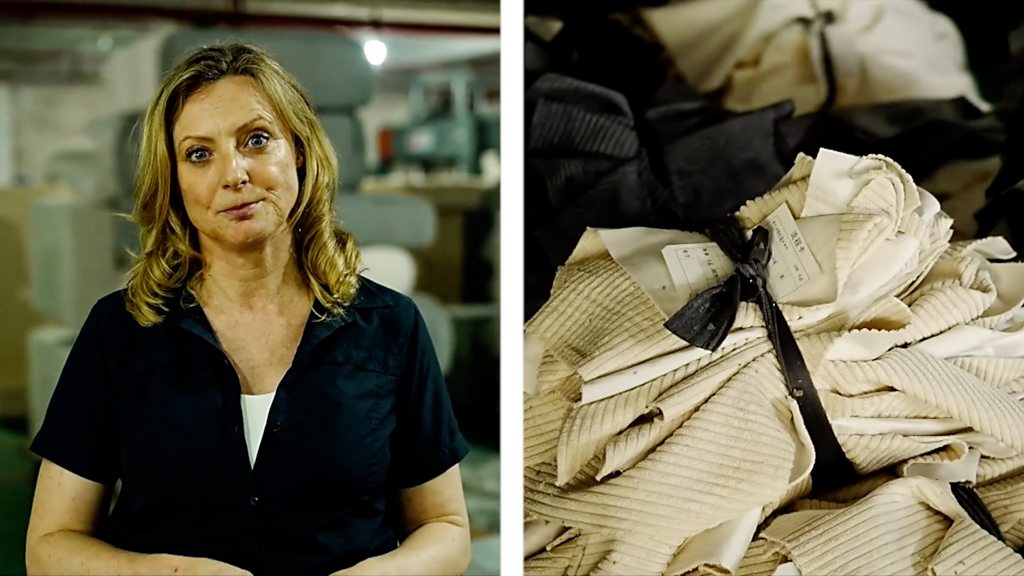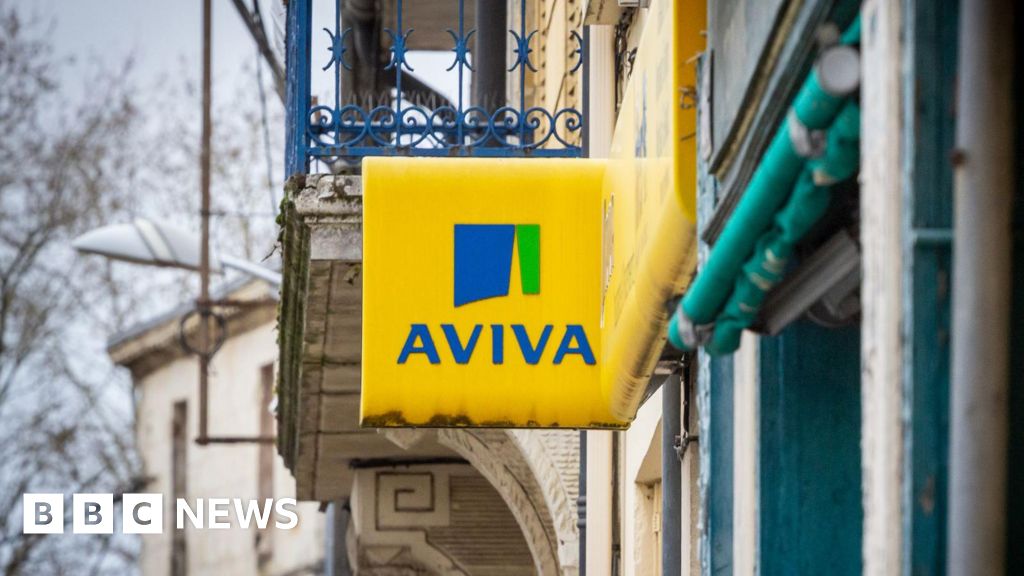ARTICLE AD BOX
By Rick Kelsey
BBC Reporter
Image source, ORE Catapult
An ambitious target of using hydrogen to partly power homes in the UK within three years has been set by the National Grid, the BBC has learned. On the east coast of Scotland, a small neighbourhood is playing a key role in this energy revolution.
From next year, about 300 homes in Buckhaven, and Methil, in the area of Levenmouth, will be powered by green hydrogen gas in a project called H100. Customers will be offered free hydrogen-ready boilers and cookers in the scheme, which will initially last five and a half years.
For the first time in its history, the National Grid (NG) plans to use something other than natural gas in its distribution network and start blending hydrogen with natural gas in the next three years.
Yet, standing in the former Fife coal mining village of Buckhaven as a cold wind howls round buildings made of local grey stone, it's hard to imagine this is the centre of a groundbreaking experiment working towards the NG's ambitions.
But as soon as you walk towards Buckhaven waterfront, it's impossible to ignore. A 200-metre wind turbine, astonishing in its size and generating green energy, stands just off the coast, making a loud swoosh every couple of seconds, as the wind is picked up and thrown into the sea.
The region has a long, proud history of energy production from its mines, but now the focus is on more environmentally friendly natural resources.
The huge wind turbine will generate electricity to power an electrolyser, which turns water into hydrogen gas and oxygen. The hydrogen will then be stored in pressurised secure tanks, before being pumped into people's homes.
The £28m project, partly funded by the Office of Gas and Electricity Markets (OFGEM), has the capability to be expanded to 1,000 homes from the same turbine.
Heating properties is thought to account for up to a third of UK carbon emissions, and the project hopes to save more than 2,650 tonnes of CO2, which is equivalent to half the homes taking their cars off the road.
Such projects are not seen as the solution by all. Recently, MPs on the Business, Energy and Industrial Strategy Committee, said the government's approach to decarbonising home heating lacked clear direction. They said current policies were not on the scale required, and rejected hydrogen as a main solution for greener home heating.
Caroline Cunningham hopes the move will help see her gas bills reduced in the long term
Meanwhile in Buckhaven, fitness instructor Caroline Cunningham, who has signed up to the project, can see the turbine from her front room.
"It's super-exciting," she says. "Something that's literally a few hundred metres away from where I live, is going to send power and energy to the housing system."
Rising gas prices and the war in Ukraine have almost doubled Ms Cunningham's bills in just 12 months, and despite paying the same for hydrogen gas as natural gas, she thinks it will bring them down in the long term.
"Hopefully we can get a more sustainable and a more stable energy source through hydrogen energy. And of course, it's good for the environment as well," says Ms Cunningham, who thinks Buckhaven leading the world on renewable energy for heating and cooking will also give new life to an area that has been dominated by the coal industry for the past century.
"I think we've taken a lot from the world and it's time that we move forward now on different types of energy sources, like the hydrogen energy."
Angus McIntosh says Scotland is blessed with natural resources to produce power
The east coast of Scotland is famous for its wind, but the town's location close to the sea - and its range of properties - made access for installing pipework simpler.
Angus McIntosh, from energy company SGN, is leading the H100 Fife project. He believes hydrogen has the ability to reduce bills in the long term.
Currently the cost of producing low-carbon hydrogen is more expensive than buying natural gas, but Mr McIntosh believes that is about to change.
"Scotland is blessed with a lot of wind and a lot of rain and also natural resources," he explains. "It's got all the ingredients to become a hydrogen exporter, as well as more than enough hydrogen to supply its people."
Yet with industrial hydrogen production hubs still to be completed, academics doubt that this would currently work on a much larger scale.
Mr McIntosh believes the project can "absolutely" be scaled up: "One of the things you've got to do to generate the interest in hydrogen production is create that market," he says. The project aims to prove that hydrogen is attractive to customers, while work is also taking place to map out the system transformation across the UK.
The NG's plan is to start blending at small percentages of hydrogen in 2025, but it aims to get up to 20% as soon as the hydrogen is available.
The UK government is aiming to achieve 5GW (five gigawatts) a year of low-carbon hydrogen production by 2030 for use across the economy. This is the equivalent to the amount of gas consumed by more than three million households in the UK each year.
To do this, blue hydrogen will be required - this is where carbon is captured by filtration of natural gas. The carbon is then often buried under the sea. Environmentalists suggest this is flawed, as natural gas is still being used despite it being described as low-carbon hydrogen, of which there is no official definition.
Tony Green, hydrogen director at the NG, explains: "Blending is taking the natural gas we have today in the network, starting with a small quantity of hydrogen, it's just another gas, we mix it up and push that down the network instead. The user won't notice any difference at all at low levels, and we will just build that level up over time."
Some of the network's biggest pipelines, which usually carry methane across the 5,000 mile network to homes and businesses, are being tested to blend hydrogen. Eventually the grid wants to replace natural gas
Mr Green believes there will be a point when natural gas is no longer used in the network, replaced with low-carbon hydrogen, either produced from wind or where natural gas is steamed and the CO2 emissions captured and stored.
"The beauty of hydrogen is that we can store it, and when the wind is not blowing or the sun is not shining, we can keep hold of the energy and run it around our network," he says.
Dr Katriona Edlmann says there is a big challenge ahead
But Dr Katriona Edlmann, a researcher on hydrogen funded by the University of Edinburgh, believes it could be the 2030s before green hydrogen is on a par cost-wise with fossil fuels.
"There's no denying we have a very big challenge ahead of us. The current generation is very minimal - even globally only 4% of our hydrogen is generated from green hydrogen - so there's a lot to do," she says.
"We just need to make it bigger, we need to do more of it. We need to create the hydrogen market which we can do through blending, and as the market grows, industry will invest in this. Industry will come, they will do the work. If the market is there, the hydrogen will be generated. But we're not quite there yet."

 3 years ago
41
3 years ago
41








 English (US) ·
English (US) ·